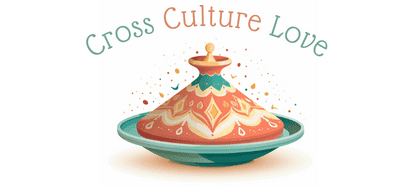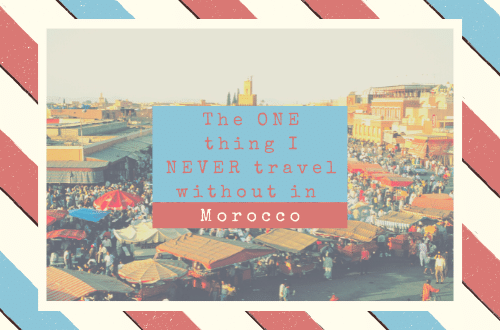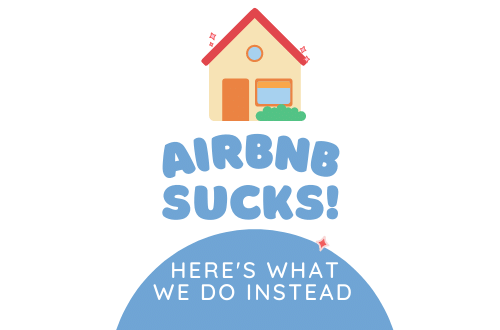
How is life in Morocco? (an honest female expat review & FAQ)
Life in Morocco is such a controversial topic, and I’m hesitant to even write about it. Many Moroccans often want to leave Morocco because “being Moroccan” has a ton of cultural, financial, and global baggage. What does that mean? The Moroccan passport is weak, meaning travel is limited and getting harder, not easier, as time goes by. The economy is also very weak, coming in globally at 97th in the economic freedom index. Many Moroccans talk about how Morocco is a prison, it’s hell, it’s dehumanizing, there are no opportunities here.
But at the same time, Moroccans are fiercely defensive of their country. So anyone from outside of Morocco saying something that isn’t glowing praise (i.e., an expat like myself) is quickly met with plenty of anger and disdain.
You may wonder, “why do you have an opinion at all? Why do you need to say if you do or don’t like it?” Or my favorite, “why don’t you just leave?” But then people ask me how I feel about Morocco, and what should I say? “No comment?”
So, if you criticize Morocco, people get mad. If you praise Morocco, people think you’re privileged, isolated, or an idiot for thinking that it’s anything but a nightmare. Rinse and repeat forever.
As an outsider in Morocco, I would like to share my perspective as somebody who has lived here for over nine months now. What is life in Morocco like, what can an expat (or “immigrant”) expect, how is life in Morocco for women, and would I suggest other people live in Morocco?
Let’s go.
Quality of life in Morocco
Income inequality is a massive issue in literally every country globally, but it’s extreme in Morocco. You’ll have highly wealthy people, but the majority are very poor. By “very poor” I mean making less than $200 USD a month on average. Some live on far less than that.
A lot of the controversial discourse around Morocco and the quality of life here is that outsiders and foreigners often never have to experience the level of poverty that the average Moroccan experiences. They will likely only ever encounter wealthy Moroccans or other foreigners. Living in cities like Casablanca and Rabat will expose you to the upper tier of Moroccan income earners.
I think this often gives people an inflated sense of life in Morocco, and they have rose-colored glasses about the conditions of “normal” people. It would be like if your idea of the United States was only based on Beverly Hills or Manhattan. It’s just an unrealistic view of what life is like for the majority.
If you have money, life in Morocco is quite comfortable. Things like rent, housekeepers, and dinners out are very inexpensive compared to places like the U.S. and Canada. We live in the middle of the city, have a car, and rarely spend more than $1200 per month (see our total expenses here).
That being said, it’s very difficult for the average Moroccan to “get ahead.” Though expenses are low, they add up quickly, and there’s a small fee or cost for everything, which adds up quicker than you realize. I could not fathom living on the average Moroccan salary, and I even had unrealistic expectations about how much things would cost when I moved here.
Living in Morocco as a foreigner
I’ve heard many times that Moroccans are some of the nicest people (especially to foreigners), and I think this is true, to a point. Some people are just genuinely inviting and friendly. But more often than not, in my experience, that friendliness is transactional. People will show you where to go… for a fee. They’ll help you, but at a cost. Or they’ll be nice to flirt or get your number.
As an American, I tend to be a very friendly, outgoing person. But that’s not normal in morocco. People don’t smile at each other, there aren’t warm pleasantries exchanged, and I tend to get glared at or ignored if I attempt to be friendly. I had to train myself to not automatically smile, nod, or greet people because that’s not how it is here.
I’ll never forget when we were at a park and a woman was trying to take a picture of what I assume was her husband and son. I offered to take a picture of all three of them, and the woman screamed at me. I guess the assumption was that I was trying to speak to her husband or something when I wasn’t. But it also just speaks to a culture of people not being so friendly towards one another.
So yeah. Many people say that Morocco is a friendly place, but that has not been my experience. Most people either stare at you or ignore you, especially as a foreigner. A lot of this will depend on if you’re in a city or a village. People will often leave you alone if you’re in, say, Casablanca. But if you’re in the village, it’s terribly uncomfortable how much people will stare.
Daily life in Morocco for a woman
Life in Morocco for women is another one of those issues that will vary wildly depending on where you are. However, generally across-the-board, women are approached, harassed, and otherwise bothered more in Morocco than in most places.
I rarely go anywhere outside without my husband because at least one person a day will come up to me for some reason or another. Sometimes it’s just for money, sometimes it’s to strike up a conversation, sometimes it’s just yelling to get my attention. And that’s even with my “don’t mess with me” face on (sunglasses, headphones, not making eye contact with anyone), and a big reason I’ve had to train myself to not automatically be friendly like I would be in the U.S., because people see it as an invitation to talk or ask for your number or money.
This is pretty much just normal life in Morocco. A lot of the responsibilities put on the women to avoid unwanted attention by dressing fully covered, wearing a wedding ring, and other preventative measures. Rarely do I see the blame being put on the men to act respectfully. When I talk about how frustrating this is, the typical response I get is, “what were you wearing?”, “boys will be boys!” and those vaguely sexist comments.
I found that the best way to handle it is to wear noise-canceling headphones everywhere and keep my head down. I flat-out ignore everyone. I’m lucky to live in an area where all the stores that I would walk to are reasonably close, and most of the time I’m with my husband so nobody bothers me.
There are other frustrating roadblocks for women in Morocco too, like renting a hotel.
Working in Morocco
I consider myself a “digital nomad,” which means I leverage technology and the Internet to work online. Working as a digital nomad in Morocco isn’t bad once you get established. It took us several months to get our Internet activated, and there are very few options for Internet, so you’re pretty much stuck with whoever services your area. There are only three primary telecom providers in the country, so if the one that services your area isn’t doing its job, you’re absolutely out of luck.
That being said, once you have the fiber optic installed, it’s excellent. Ours is stable, rarely goes out, and I’ve had no issues despite video calling several times a week and doing some heavier editing type work. Unfortunately, the one thing that I don’t particularly like about working in Morocco is the coffee culture. Morocco has some completely amazing, adorable cafés with delicious coffee. However, almost every single coffee shop that I’ve ever found was entirely overrun by smokers.
For Moroccans, coffee shops are synonymous with smoking. Often men will only smoke coffee shops and not in the home. So if you plan to go to a café to get some work done, know that you’re going to be inundated with cigarette smoke. This won’t be an issue for some, but I have extreme reactions to cigarette smoke, so even working outdoors with chain-smokers all around me is pretty unbearable. It’s unfortunate because I would enjoy spending part of my workday at a café.
The Benefits of living in Morocco
I’ve previously written an entire post on the pros and cons of life in Morocco, but I think it’s worth repeating here. There are a lot of benefits to living in morocco. It’s a beautiful country with diverse geography, fantastic food, and the pace of life is entirely incomparable to the United States. There are many things that can be very stressful, but if you have a good income and a good partner or friends to help you navigate the often tricky language, morocco can be a fantastic place to live.
In fact, my stress went down considerably when I moved from the United States to Morocco. This is partly because of the pace of life, which is much more relaxed. But also because there isn’t a “live to work” mentality. Many people who don’t have to work opt not to work, and there’s this idea of “why would I work if I don’t have to?” In the United States, your job is your identity. In Morocco, it’s just that: a job.
Another great benefit to living in morocco, especially as an American, is the fact that Morocco is so close to many amazing and diverse vacation destinations. It’s remarkably cheap to just fly over to Europe and other parts of North Africa. The United States tends to be pretty homogenous, but Europe and Africa have many distinct and unique cultures kind of are within relatively close proximity to each other. Since moving here, I’ve had the opportunity to travel to more countries than I was ever able to see while living in the United States, just because most countries are so far away from the contiguous U.S.
F.A.Q
What should I avoid in Morocco?
I would personally avoid living here as a single female. I struggle to navigate the culture whenever I’m apart from my husband, and if not for him I would have left almost immediately. There are just too many opportunities to be harassed, taken advantage of, or otherwise bothered. From what I’ve been told, even Moroccan single women often rely on male relatives in many ways to navigate society without as many problems.
Between the paternalistic nature of the culture and the difficulty of the language, I can’t imagine a single foreign or female wanting to live here for very long. There are definitely women who are foreigners who live here by themselves successfully, but I personally wouldn’t want to do it and I applaud them for making it work.
Can you drink in Morocco?
I get this question quite a bit for some reason. I personally don’t drink, and my husband is Muslim so he doesn’t drink. Technically you can, but I wouldn’t. I’ve heard some pretty horrific things about the club and drinking scene in Morocco.
The alcohol scene is often accompanied by heavy drug use and prostitution. Prostitution is quite prolific and exploitative and unregulated. Even if I did drink, I would certainly not drink here. Rarely do I see alcohol actually sold, though there are a few bars in my city. I just know personally I would never participate in that culture in Morocco.
Would you recommend other digital nomads to move to Morocco?
Whether not somebody should move to Morocco will definitely depend on what they’re hoping to find in the community. If somebody is social and looking for easy friendships with other English speakers, definitely not. Maybe in the bigger cities, but foreigners and outsiders are not integrated easily into normal society throughout most of the country.
What’s the best place to live in Morocco?
This largely depends on your personality. Rabat, Casablanca and Marrakech are probably best if you like having an active social life. If you like slower beach life, Essaouira and Tangier are nice options. If you like a range of seasons and snow in the winter, Ifrane is a good choice.
Conclusion
Morocco is a complicated and beautiful place, and life in Morocco varies so much based on many different factors. If you have a good income, people in your life that speak the language, and are open to trying out new ways of living, Morocco could be a great choice. However, it is not particularly an easy place to live for many people. Living in Morocco is very different from vacationing or visiting, so it’s important to know what to expect before settling down here.






22 Comments
Jeny
It’s a shame that no matter where women goes there’s no safer place. Very informative post for living in Morocco.
Jasmyne-Nicole Walker
Thanks for this! I recently visited Morocco for a week and am
Now considering moving there for a year or two. I have two dogs and two cats and I’m really craving a change of scenery and cultural shift from the U.S. Peehaps there is even an opportunity to build an expose business for North African goods shipped directly to customers in the U.S. At any rate, this was extremely helpful. Do you know of any other expats who are single women who you could refer to?
Kate
There are groups where you can meet other expat women on Facebook! Do you know what city you’re coming to?
Anthony
I’ve known morrocan people I’ve found them to be very friendly,but at the same time very guarded.
Family is important. In many ways they remind me of Italians.
I’ve been to just about every major city in Italy and what you describe
In morroco I’ve experienced in italy.
But I believe as you’ve written, it’s a matter of economics. I did a little experiment in Italy. In sienna.
I told some locals I was leaving the u.s.because I was sick of the way
I lived..work..taxes..etc..it was a 100% turn around the people treated me like family.shortly I will visit morroco..I hope it goes well.
Marco
Hi.
What you described actually is a reflection of what you are more than how Morocco and moroccans are. I lived in Morocco for 25 years, I have rarely met such hospitable people around the world, definitely not in USA neither Canada (my country). Believing that anyone who offer to be nice to you, have an agenda or want something from you is more of your prejudice than the truth. You lived 9 months in morocco, it’s clear you don’t know much about Morocco neither Moroccans. Your perspective is purely the one of a “tourist” who comes with prejudices and not opening your eyes to values i existant in your country and you can’t understand neither handle.
Kate
I’ve actually been here closer to two years now and stand by what I say. Are you saying yours is the only valid opinion on Morocco? Do you think Morocco is such a monolith that we’ve had exactly the same experiences? That’s foolish. You’re a man I’m guessing based on your name, did you stop to consider that a man in Morocco would have a different perspective than a woman, much less a solo woman? You can come here and say I’m wrong, I’m prejudiced and I’m the problem, but it sounds like you just lack the empathy and awareness to recognize that different people can have different experiences. Have a good day.
Sandy
Marco actually reinforced what you said about being female in Morocco. Nice job backing up your comments.
Amber
Hi Kate,
Thanks for sharing this honest take on life in Morocco as an American woman. Reading this post, I thought a lot about my experiences studying abroad in Jordan, where it could often be difficult to navigate social situations alone. I’d agree that it’s worth taking extra precautions if you choose to drink in a country where it’s not the norm; the bars are often–but not always!–seedier than we’re used to in the US.
I appreciate your candor, and, as an expat living in Ireland, I can totally relate to the difficulties of navigating a new culture! Thank you again for sharing.
Amber
Jay
Hey! You made some great points. Took the thoughts right out of my head! I live in Tetouan… small, traditional town so I share some of those struggles. For the longest time I wouldn’t do anything without my husband. Or like you said, headphones, look down… no eye contact when I’m walking outside! It can be intense. But at the same time, there’s a beautiful sense of peace living in Morocco when you shut out the noice and stares. Mountains (where I live) ocean… all around beauty for the fraction of the price of living in USA.
When the time comes to move back to USA, I will miss the fresh produce the most!!! Local, real, deliciousness, for a fraction of the price.
Fatiha
I’m moracan I moved to USA over 34years ago . I’m ready to retire and im afraid to go back to Morocco because I’m single woman
N. Hannat
Hello Fatiha,
I so much undertand and feel what you wrote!
I myself went through this experience five years ago after living in the USA over 30 years.
As Kate genuinely described it; there are some good things and other not so good things about living in Morocco, and being a female, in general, makes it harder.
I think that one way to look at it would be to:
* Check your finances and see if you can afford to remain in the USA, and come to Morocco for a few months during the year. Or vice-versa,
*. Do your research based on what kind of environment you’d like and need to live in (urban vs. rural etc.). Then come and stay in that area for a one to three months to observe what’s going on and decide if you can really live in Morocco without the “amenities” that you have in the USA.
Good luck with your future endeavors.
Nafissa
Paige
Thank you for sharing your honest take on life in Morocco! It’s so eye-opening to read about your experiences as a woman and a foreigner living in Morocco
W. Santiago | Literal Med
Living in another country is a great opportunity to learn many things. Thanks for sharing your experince.
Said
Thank you for sharing your experience of living in Morocco! Morocco is a beautiful country, but as you said, the main problem is income, it is not easy to find a job, especially in the south-east of the country. I am Moroccan and I have lived abroad for more than 15 years, now it’s time to go back to Morocco due to a lot of stress and being far from my family.
Rachel
Hi
I am single female and have been living and running my own business in Morocco for 15 years.
It is a country that presents many challenges of which poverty, corruption, inefficient bureaucracy and poor education are the most problematic.
I lived in Marrakech for many years and learned to be careful in whom to trust…non-Moroccans in Marrakech can be treacherous, conniving and dishonest too! But, to make true friends and to find your comfortable space takes a lot of time and a lot of unpleasant experiences along the way. It takes years, not months.
I am still in Morocco and have moved to the coast. I lived in the countryside also for a while. Moroccan people are warm, friendly, welcoming, generous…. the simplest people will share their meal with you. It is us, the outsiders, who have to learn how to be understood and how to understand their point of view. Imagine you stop to take a photograph of some quaint rural scene…but then just think…from the other point of view, you are holding a camera that costs more than the person you are pointing it can earn in 6 months or more.
I work with wonderful Moroccan people. I have good and bad neighbours here. As anywhere in the world. But, I recognise that I come from a country of privilege and that can cause resentment.
So…to feel relaxed and welcome in Morocco, whether male or female, BE SENSETIVE, BE WISE, BE RESPECTFUL, BE RESPECTABLE, BE GENEROUS, BE GENUINE and use your common sense!
Like a tajine, the flavours take a while to blend, but given enough time the result is delicious!
Jayne leeland
Hello ..I have been thinking of moving to Morroco but as a women in her 50s, Would you recommend it
Kate
There are many expats in Morocco who are 50+ who love it 🙂
Sara
I’m moving to morocco in a couple months to settle down with my husband and son. My fathers house is to apartment like and I wanted to know if it’s easy ordering decorations from Amazon or something to make it feel more like a home? Like fairy lights and photo frames? Or can those be found easily these days? I haven’t been there since I was 10 so I don’t remember how easy it would be to try to find things that I like to do. Also my husband has a tattoo and I was wondering if he’d look weird wearing longer sleeves/athletic sleeves or would it be ok to just not hide it.
Kate
Hi Sara! Welcome back to Morocco! As far as Amazon, no. Anything you buy on Amazon will cost 5x the regular cost or more and you’ll have to pay insane import fees that were implemented in the last couple of years. I have never purchased anything from Amazon because a $15 item will cost $70+ in shipping and more in fees. You can buy things locally (Ikea, Kitea, Marjane, local sellers). Ikea ships all around Morocco for a small fee, including furniture.
I have six tattoos and nobody has ever made me feel weird about it. I feel like foreigners get a “pass” as far as tattoos, but I also know Moroccans who have tattoos and people may make some assumptions but it’s not that big of a deal, I don’t think.
Nikki
Hi Kate,
Thank you for sharing your experience. I would like to share my experience with the staring you mentioned. I am a Black American woman, very well traveled, lived in Morocco for one year and plan to retire there. I found that among all my world travels, Morocco was the only country where no one ever stared at me. As a Black American with all the mixed blood that brings, I am honey colored with curly brown hair. I get stared at in the United States and all over the world – expect in Morocco. Everywhere, but in Morccoo, I am the “other” and am constantly stared at. In Morocco, no one stares at me and I am always treated in a friendly and welcoming way. I feel more at home in Morocco than anywhere else in the world.
Ala
Hello there. Thanks for all the info. I’m Asian from California. Recently lived in Turkey for 2 years and thinking of moving to Morocco. Been there 2 times and recently toured Morocco for over a month, met amazing people I can call family. Any advise if I moved either in Marrakech or tangier? Single retired woman and flexible to live anywhere. Don’t speak French or Arabic, Darija. Speak English, Italian, little Spanish and Asian dialects.
I’m just concerned with the medical issues or hospitals.
Would love to hear your comments.
Kate
Personally, I would pick Tangier. It’s only a 50 minute ferry ride to Spain and much closer to the rest of Europe if you plan to do any traveling. Marrakesh is very hot, and quite expensive to fly in and out of, in my experience. As far as medical, I would not personally rely on Morocco for medical care. Even the private hospitals are not very high-quality.